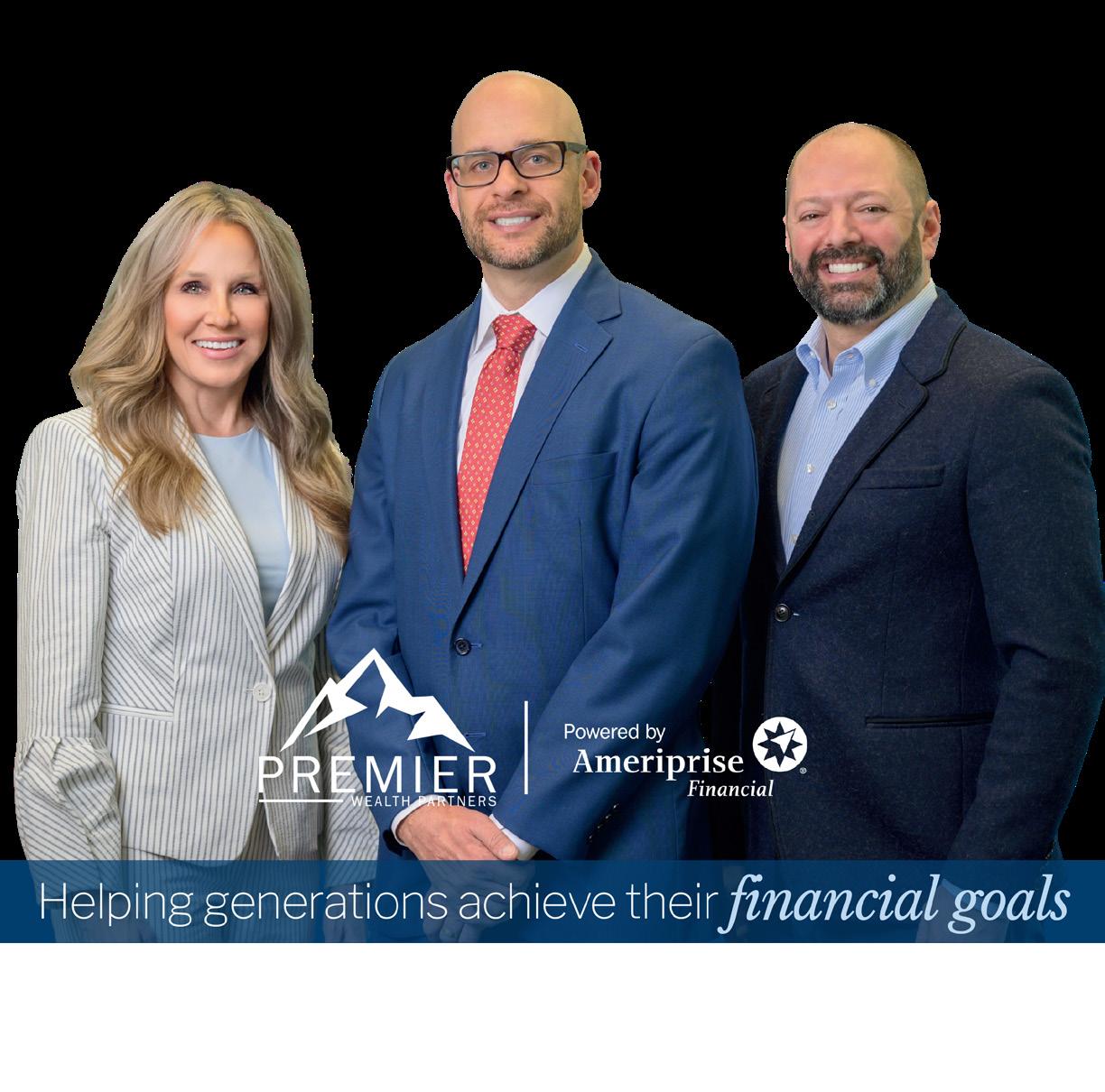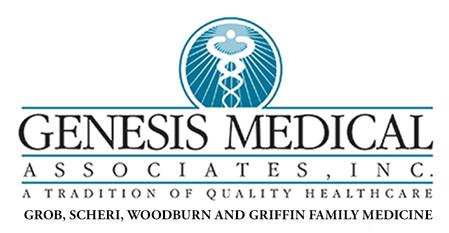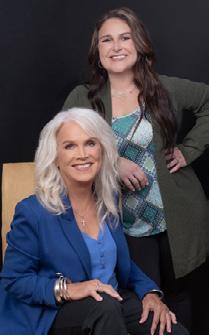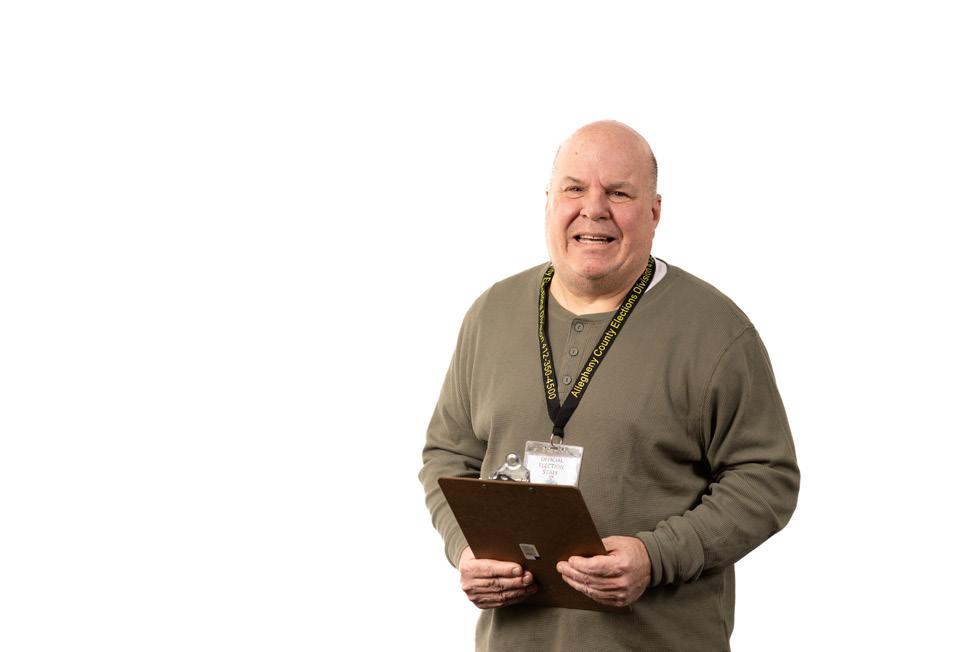


Helping generations achieve their financial goals








At UPMC Senior Communities, we know how to enjoy fall—with activities, fun, and friendship.
And forgetting all about foliage clean up and maintenance.
Visit one of the UPMC Senior Communities near you and see how true independence can mean more of the things you want to do, and less of the things you have to do.
Call 1-800-324-5523 or srcare.org/UPMC.
Communities located in: Allison Park • Hampton Monroeville • Washington, PA

Scan the QR code to learn more.



50”
Access
Housekeeping
Customized
Spacious rooms
Large, light-filled rooms with solid wood furniture and 50" TVs
On-Site Physical Therapy
Partnership with FOX
Rehabilitation will provide on-site
PT/OT/Speech therapy
Restaurant Style Dining
Our in-house chef prepares weekly, nutritious menus from fresh ingredients
Medical Coordination
Choose on-site medical care or we can support doctor appointment coordination
Community Engagement
Daily social engagement activities and community-based programs
Medication management








PO Box 425 Mars, PA
Phone:
President & Publisher
Laura Lyn Arnold
Publisher Emeritus & Contributor
Marion Swanson Piotrowski
Executive Editor Emily King
Managing Editor/ Public Relations Coordinator
Paula M. Green
Marketing & Account Executives
Mary L. Simpson
Sharon Yezerski
Design & Production
Kostilnik & Assoc. Graphics, Inc.
Web Master
Swanson Publishing, LLC
Contributing Writers
Joseph C. Maroon, MD, FACS
Janice Lane Palko
Pittsburgh Fifty Five Plus Magazine is published four times a year by Swanson Publishing, LLC (P.O. Box 425, Mars, PA 16046, 724-940-2444) and is distributed free of charge throughout the Greater Pittsburgh region. Subscription can be purchased from the publisher at $25 for one year.
The mission of the Swanson Publishing, LLC is to connect the people of Pittsburgh by publishing the area’s finest senior publication, Pittsburgh Fifty Five Plus Magazine. The publication is dedicated to the people, communities, educational, religious, travel, health, and recreational needs of seniors in our area.
The contents of Pittsburgh Fifty Five Plus Magazine may not be reproduced or copied in whole or in part without written permission from the publisher. Pittsburgh Fifty Five Plus reserves the right to refuse editorial or advertisements that do not meet the standards of this publication.
When it comes to buying or selling your home over the age of 50—or supporting your senior parents through a move—finding a real estate professional who is both qualified and understands your unique needs is essential. These questions will help you choose the right specialist.
When it comes to buying or selling your home over the age of 50—or supporting your senior parents through a move—finding a real estate professional who is both qualified and understands your unique needs is essential. These questions will help you choose the right specialist.
1.WHAT EXPERIENCE DO YOU HAVE WITH SENIORS AND THEIR FAMILIES?
1.WHAT EXPERIENCE DO YOU HAVE WITH SENIORS AND THEIR FAMILIES?
Understanding the specific needs and challenges of senior clients is crucial. Have they helped clients downsize, relocate to retirement communities, or navigate the emotional aspects of selling a longtime family home?
Understanding the specific needs and challenges of senior clients is crucial. Have they helped clients downsize, relocate to retirement communities, or navigate the emotional aspects of selling a longtime family home?
2.WHAT RESOURCES AND SUPPORT DO YOU PROVIDE?
2.WHAT RESOURCES AND SUPPORT DO YOU PROVIDE?
A good real estate specialist should offer more than just buying and selling services. Ask about the additional resources they can provide, such as connections to senior moving services, legal and financial advisors, or professionals who can assist with estate sales.
A good real estate specialist should offer more than just buying and selling services. Ask about the additional resources they can provide, such as connections to senior moving services, legal and financial advisors, or professionals who can assist with estate sales.
3.HOW DO YOU COMMUNICATE WITH YOUR CLIENTS?
3.HOW DO YOU COMMUNICATE WITH YOUR CLIENTS?
Ask about their preferred methods of communication and how often they will update you on the progress. Ensure they are comfortable using communication methods that work best for you or your senior family members, whether it’s phone calls, emails, in-person meetings, or even written letters.
Ask about their preferred methods of communication and how often they will update you on the progress. Ensure they are comfortable using communication methods that work best for you or your senior family members, whether it’s phone calls, emails, in-person meetings, or even written letters.

4. WHAT DO YOUR PAST CLIENTS SAY ABOUT YOU?

4. WHAT DO YOUR PAST CLIENTS SAY ABOUT YOU?
Request testimonials or references from past clients, especially those who are seniors. Positive feedback from previous clients can give you confidence in the agent’s ability to handle your needs.
Request testimonials or references from past clients, especially those who are seniors. Positive feedback from previous clients can give you confidence in the agent’s ability to handle your needs.
5. ARE YOU A SENIORS REAL ESTATE SPECIALIST® (SRES®)?
5. ARE YOU A SENIORS REAL ESTATE SPECIALIST® (SRES®)?
An SRES® designation means the agent has completed specialized training to better serve senior clients. This includes understanding the unique financial and emotional challenges faced by their clients over age 50. Choosing an SRES® ensures you’re working with a professional who has the expertise and dedication to meet your specific needs.
An SRES® designation means the agent has completed specialized training to better serve senior clients. This includes understanding the unique financial and emotional challenges faced by their clients over age 50. Choosing an SRES® ensures you’re working with a professional who has the expertise and dedication to meet your specific needs.
"I'm Your SRES®"
Add contact information here

Your SRES®" contact information here Deb Walton, SRES®



designation, which is an official credential of the National Association of REALTORS® (NAR).




Two emotions are common for those who are nearing retirement – excitement and fear. Leaving the working world behind can feel empowering, however, apprehension about entering a new life stage may also creep in. If you’re nearing retirement, you’ve likely taken steps to prepare financially for the future. But there’s one important thing you might not have considered adding to your pre-retirement checklist – a practice run. Test driving aspects of your plan before you’re actually in retirement can help provide a sense of security for this next phase of life.
Consider what an ideal retirement looks like in the long term. How you choose to spend your time (and in many cases, your money) in retirement is your decision to make, but it’s not always an easy one. As we age, our interests, hobbies and relationships change. What you may consider your “ideal” retirement when you’re 55 may not be the same as when you’re 65. This evolution can make it hard to plan accurately for retirement. Consider sitting down with your spouse or family members to explore how aging and future milestones may alter your retirement. Your financial advisor can help you make a plan that aligns your ideal retirement with your financial situation.
Test drive your retirement lifestyle. Many people pledge a significant amount of savings towards a particu-

lar lifestyle in retirement. This could be a home in another part of the country, a timeshare or a trip abroad every year. Problems can arise if you have cemented a financial commitment to a certain lifestyle but change your mind down the road. It’s natural to change your mind about what you want, but it’s better to understand the potential implications of altering your plan before you actually retire.
For example, those who have based their financial plan for retirement on the idea that they will be living in a new location may benefit from a practice run before making the big move. Consider an individual who has lived their entire life in New York, but moves to Florida when they retire – where taxes and cost-of-living are generally lower. Deciding after several years to relocate back to New York to be near family – where cost of
living and tax rates differ – can mean savings may not go as far as planned. Be prudent and build some flexibility into your plan to avoid unintended consequences.
Simulate your retirement expenses. Practice can also be beneficial in another way – simulating how to manage your expenses in retirement. The idea that your cash flow no longer comes from a reliable paycheck, but from other sources like Social Security and personal savings can come as a shock – even to those who are well prepared for this change.
One idea to accomplish a sense of financial security is to run two accounts for a certain period of time. Through one account, manage all of your household and lifestyle expenses that you expect during retirement. This includes the costs for necessities like food, clothing, shelter, utilities, taxes and insurance as well as “nice-to-have” items like dining out, traveling, etc. Keep in mind that you may have to estimate or inflate your lifestyle expenses for retirement as they could rise when you have more free time.
Through the second account, manage all of your expenses that are expected to end in retirement like principal and interest on a mortgage payment (if your home will be paid off), current car payments (although car payments can certainly happen again in retirement), college costs for your kids and contributions to retirement plans. Keeping these two separate accounts will help you more appropriately plan for and quantify your expenses in retirement.
The best way to get a handle on these expenses is to experience them while you’re still working. Take that trip to Europe before retirement and find out firsthand what you can do within your budget. If the cost is different than expected, make adjustments to your financial projections to more accurately reflect reality.
Perfecting life in retirement. A little practice can go a long way toward easing emotional and financial concerns when it comes to making the jump into retirement. Consider working with a financial advisor who can help you determine a budget and a retirement income plan that fits your needs and desires.
Antonio Aiello, CFP®, CRPC™, is a Private Wealth Advisor and Partner with Premier Wealth Partners, a private wealth advisory practice of Ameriprise Financial Services, LLC in Pittsburgh, Pennsylvania. He specializes in fee-based financial planning and asset management strategies and has been in practice for 25 years. To contact him, visit online at pwp-advisors.com, call 412-922-7700 or visit in person at 1570 Omega Drive Pittsburgh, Pa 15205.
Lisa Brooks, CFP®, CRPC™, is a Financial Advisor and Partner with Premier Wealth Partners, a private wealth advisory practice of Ameriprise Financial Services, LLC in Pittsburgh, Pennsylvania. She specializes in fee-based financial planning and asset management strategies and has been in practice for 25 years. To contact her, visit online at pwpadvisors.com, call 412-922-7700 or visit in person at 1570 Omega Drive Pittsburgh, Pa 15205.
Brian Stumpf, CFP®, is a Private Wealth Advisor and Partner with Premier Wealth Partners, a private wealth advisory practice of Ameriprise Financial Services, LLC in Pittsburgh, Pennsylvania. He specializes in fee-based financial planning and asset management strategies and has been in practice for 20 years. To contact him, visit online at pwpadvisors.com, call 412-922-7700 or visit in person at 1570 Omega Drive Pittsburgh, Pa 15205. n
Certified Financial Planner Board of Standards, Inc. (CFP Board) owns the CFP® certification mark, the CERTIFIED FINANCIAL PLANNER™ certification mark, and the CFP® certification mark (with plaque design) logo in the United States, which it authorizes use of by individuals who successfully complete CFP Board’s initial and ongoing certification requirements.
Investment products are not insured by the FDIC, NCUA or any federal agency, are not deposits or obligations of, or guaranteed by any financial institution, and involve investment risks including possible loss of principal and fluctuation in value.
Ameriprise Financial, Inc. and its affiliates do not offer tax or legal advice. Consumers should consult with their tax advisor or attorney regarding their specific situation.
Ameriprise Financial cannot guarantee future financial results.
Securities offered by Ameriprise Financial Services, LLC. Member FINRA and SIPC.
© 2025 Ameriprise Financial, Inc. All rights reserved. File # AMP7265693.1- (Approved until 01/31/2027)


Presented by UPMC Senior Services and UPMC Western Behavioral Health Foundation
The 17th Annual “Celebrating Champions” dinner and silent auction takes place Thursday, October 16, at The Westin Pittsburgh. Co-hosted by UPMC Senior Services and UPMC Western Behavioral Health, the event recognizes esteemed individuals and organizations who have improved the quality of life in our region. This year’s distinguished honorees are united in their service to older adults and behavioral health.
Guests will have the opportunity to greet honorees during a cocktail reception, place bids on items in a robust silent auction, and enjoy a superb dinner. The highlight of the evening is the awards presentation, which celebrates the extraordinary impact that this year’s honorees have made throughout our region and beyond. The event is made possible by sponsorship from UPMC For Life, Oakdale Seniors Alliance, Gumpher Electrical Service, Concentra, and many other generous businesses and individuals.
The Grand Champion Award is the highest honor presented and is bestowed upon a person who has provided exceptional leadership in improving the wellbeing of countless individuals across our region. Tracey Conti MD, MBA , is our 2025 honoree. Dr. Conti most recently served as the UPMC Andrew W. Mathieson Chair of the Department of Family Medicine at the University of Pittsburgh School of Medicine and UPMC. She held several roles in the department, including vice chair for education and practice integration, program director of the UPMC McKeesport Family Medicine Residency Program, and executive vice chair.
Dr. Conti is a native of Pittsburgh and graduated from
Woodland Hills Senior High School. She is a graduate of Temple University School of Medicine and completed her family medicine residency at the University of Maryland, where she served as chief resident. Dr. Conti is fellowship trained in women’s health and faculty development and received her master’s in business administration from the University of Pittsburgh Katz School of Business.
Dr. Conti served the communities of Pittsburgh for 25 years. She was the medical director of the Matilda Theiss Health Center in the Hill District and was the lead investigator in seeking funding as a Federally Qualified Health Center status for that site. This grant brought many needed resources including social work and on-site medication dispensing to this community. The majority of Dr. Conti’s clinical care has been in the McKeesport area where she practiced at the Latterman Family Health Center and UPMC McKeesport. She has participated in many youth and community educational outreach programs and was a founding board member for the 9th Street Free Clinic in Rankin.
Dr. Conti is passionate about health equity and considers it a driving force in her medical career. Her clinical and advocacy interests include health disparities and health care delivery to

Tracey D. Conti, MD, MBA
UPMC Andrew W. Mathieson Chair
Department of Family Medicine
University of Pittsburgh School of Medicine/UPMC

Kane Community Living Centers
Josephine Chappell, Resident
Jeana Williams, LPN
Glen Hazel Community Living Center
McKeesport Community Living Center
Ross Township Community Living Center
Scott Community Living Center
underserved communities, medical education, and women’s health. She is a champion for patient empowerment through education and the development of strong patient-physician partnerships to optimize individual, family, and community health care. Currently, Dr. Conti is the vice dean of Clinical Affairs and vice president of Academic Practices at SSM Health and St. Louis University.
The 2025 Community Champion Award, given to acknowledge an organization that has demonstrated transformative leadership in improving communities in and around the Pittsburgh region, is being presented to Kane Community Living Centers
Caring for elderly people and adults who require skilled nursing care has been the responsibility of Kane since 1958. In 1984, four separate geographic areas were selected to expand nursing care to residents of Allegheny County into their communities. Four Centers in Glen Hazel, McKeesport, Ross Township, and Scott Township continue to provide convenient alternatives for families who remain active in their loved ones’ lives. Similarly at Kane, residents can remain engaged with their life-long communities.
With an extensive range of medical resources, specialty care units, therapy treatments, and recreational programs, Kane is a trusted source for long and short-term care for a diverse population including persons with dementia, substance use disorders, and intellectual and developmental disabilities. Kane’s strength is the unwavering compassion and commitment of staff, many of whom are members of the community in which they work, dedicated to providing good care to neighbors, friends, and family.
The Caregiver Champion Award recognizes extraordinary individuals whose commitment to the realm of caregiving significantly enhances the wellbeing of others. Our 2025 Caregiver Champion is Allegheny Family Network, led by Ruth Fox, chief executive officer.
More than 40 years ago, Ruth began her career as a nurse and an active volunteer in her community. She was involved in various initiatives, from homeless and housing coalitions to community mental health and support programs, all while practicing as a nurse. In 1998, Ruth transitioned into the mental health field at Community Human Services here in Pittsburgh. During her ten years there, she rose to become the director of residential programs.

Allegheny Family Network
Ruth Fox, Chief Executive Officer
Ruth’s unique combination of professional and personal experiences makes her exceptionally qualified to serve as the chief executive officer of Allegheny Family Network. As a parent of four children, one of whom was diagnosed at age eight with major depression and agoraphobia, Ruth has a firsthand understanding of the challenges families face.
Under Ruth’s leadership, Allegheny Family Network has grown from a small operation with just five employees, a chat line, and a resource library to one of the largest family organizations of its kind in the country. The organization now employs more than 40 dedicated employees who are all equipped with personal experience raising children with emotional and/or behavioral challenges. Allegheny Family Network offers, through “lived experience,” a comprehensive range of services tailored to meet the unique needs of families in Allegheny County and across the state through shared experiences, informative resources, educational programs, and strong advocacy efforts, ensuring families have the tools and guidance they need to thrive.
Proceeds from the dinner and auction support two outstanding causes, the UPMC Senior Communities Benevolent Care Fund and the UPMC Western Behavioral Health Foundation. In its 17-year history, this event has contributed more than $2.4 million toward philanthropic care. n Tickets on sale now!
To reserve your ticket, contact Debra Panei, director of development, UPMC Senior Services, at 412-864-3524 or paneid@upmc.edu .
The extensive silent auction, with something for everyone, gets underway September 16. To participate, visit 2025CC.givesmart.com.

By Joseph C. Maroon, MD, FACS
Until the 1990s, most research involving human health and disease used the “male model.” As a result, women were significantly underrepresented in many areas of clinical research, particularly in early-stage trials. This has created significant gaps in medical knowledge, leading to potential untested treatments that might be ineffective or even harmful to women.
One of the most disturbing gaps is the lack of research on preventing and treating Alzheimer’s disease. This gap in research has led to inadequate understanding of risk factors, such as differences in hormones, menopause, and the progression of the disease in women. Women are, in fact, more likely to develop Alzheimer’s than men. Additionally, women with Alzheimer’s may be diagnosed later than men despite a faster rate of cognitive decline due to this bias.
In September 2025, a new research study at King’s College in London investigated the differences between men and women with Alzheimer’s disease, comparing omega-3 levels of each sex. Specifically, they were investigating why the female brain was potentially more susceptible to Alzheimer’s
disease. Typically, compared to men, women have higher levels of omega-3 fatty acids, but in the current analysis, women with Alzheimer’s showed a surprising deficit in these lipid molecules. They concluded that ‘healthy,’ unsaturated fats, like omega-3, may partly explain that discrepancy.
The researchers did not find the same lipid changes in men with Alzheimer’s compared to men without Alzheimer’s, indicating that these fats may affect the disease differently based on sex. While more research is necessary to understand the exact mechanisms and confirm these benefits, consuming omega-3s from foods like salmon, walnuts and certified dietary supplements could support overall brain health and potentially help stave off cognitive decline in women.
It has long been recognized that omega-3s are essential fats that promote overall brain health by maintaining the structure of brain cells, improving memory and learning, and
supporting cognitive function. Omega3s, especially DHA, are a major component of brain cell membranes, keeping them flexible and functioning properly. Omega-3s help to lower inflammation in the body and brain, which is a known factor for joint pain and cognitive decline.
I personally use omega-3 fish oil daily and recommend it to all my patients. I recommend a high-quality source of omega-3 as a dietary supplement. Please ask your healthcare professional before taking any new supplement or significantly changing your diet. n
Joseph C. Maroon, MD, FACS, is a board-certified neurosurgeon with more than 40 years of clinical experience at the University of Pittsburgh Medical Center. He ia a neurosurgeon consultant for the Pittsburgh Steelers. Dr. Maroon is an expert and consultant in the areas of wellness, sports nutrition, concussion management, and brain and spinal problems. He is an internationally competing Ironman triathlete.




As we grow older, our homes should grow with us—not just in comfort, but in safety. Whether you’re living alone, with a spouse or partner, or have family nearby, making a few thoughtful changes can help prevent accidents and give everyone peace of mind.
Let’s walk through some simple, effective ways to make your home a safer space.
One of the easiest ways to reduce the risk of falls is to keep walkways clear. That means:
• Removing throw rugs or securing them with non-slip backing.
• Tucking away electrical cords.
• Keeping floors free of clutter like shoes, bags, or pet toys. If you use a cane or walker, make sure there’s enough space to move around comfortably—especially in hallways and between furniture.
Good lighting is essential. Dim corners and shadowy staircases can be dangerous, especially at night. Try these quick fixes.
• Add nightlights or motion-sensor lights. Nightlights might be more practical in bedrooms and bathrooms while motion-sensor lights could be beneficial in hallways.
• Use brighter bulbs in key areas like the kitchen and entryway.
• Consider motion-sensor lights for outdoor steps or inside closets.
Bathrooms are one of the most common places for slips and falls. A few upgrades can make a big difference.
• Install grab bars near the toilet and in the shower.
• Use a shower chair or bench if standing is difficult.
• Place non-slip mats inside and outside the tub.
• Consider a raised toilet seat for easier sitting and standing.
Technology doesn’t have to be intimidating. In fact, it can help you stay safe and independent.
• Medical alert systems can call for help with the push of a button.
• Smart lights can turn on automatically when you enter a room.
• Video doorbells let you see who’s at the door without getting up.
If you’re unsure where to start, ask a family member or neighbor to see if they have any recommendations.
Preventing falls isn’t just about your home—it’s also about your health. Staying active helps improve balance and strength. Try:
• Gentle exercises like walking, stretching, or tai chi.
• Wearing supportive shoes with non-slip soles.
• Scheduling regular vision and medication reviews. Even small changes to your routine can make a big difference. Senior and recreational centers may occasionally offer fall prevention or balance classes.
If you’re unsure about what changes to make, talk to someone you trust. You can:
• Ask a loved one to walk through your home with you.
• Use a home safety checklist (many are available online).
• Contact a certified aging-in-place specialist for professional advice.
Your home should be a place of comfort, not concern. By making a few smart adjustments, you can enjoy your space with confidence and ease. And remember—safety isn’t about giving up independence. It’s about protecting it.
For more information, including home safety videos, visit https://upmc.com/services/seniors/. n
The University of Pittsburgh’s Pittsburgh Regional Dementia Caregiver Training and Employment Program was awarded a grant through the Henry L. Hillman Foundation as a part of its Healthy Aging Challenge. In partnership UPMC Senior Services, free training sessions for family caregivers, professionals, and intergenerational champions provide new ways of interacting and supporting individuals living with dementia. If you would like to learn more about this opportunity, please reach out to Education and Consultative Services of UPMC Senior Services at 866-430-8742 or UPMCSeniorServices@UPMC.edu.
Being a good neighbor means being there for my community. As your local State Farm® agent, I'm ready to help whenever you need me. Give me a call.
Piotrowski Insurance Agcy Inc
Pete Piotrowski, Agent 11565 Perry HWY, Suite 4 Wexford, PA 15090
Bus: 724-935-6330
pete@petesinsurance.com www.petesinsurance.com






As we age, healthcare becomes increasingly complex, requiring coordinated efforts to manage chronic conditions, preventive screenings, and overall well-being. Having a trusted primary care physician (PCP) is crucial for navigating these changes and maintaining quality of life. PCPs serve as the central point of contact for patients, ensuring continuity of care and facilitating collaboration with specialists, therapists, and other healthcare providers.
Studies show that adults who maintain a strong relationship with a PCP are less likely to experience hospitalizations and are more likely to adhere to preventive care recommendations1 Grob, Scheri, Woodburn & Griffin Family Medicine, part of Genesis Medical Associates, is dedicated to providing this essential support, particularly for the 55+ population.
With two locations (1140 Perry Highway, Pittsburgh, PA 15237, and 4001 Stonewood Drive, Suite 200, Wexford, PA 15090) Grob, Scheri, Woodburn & Griffin Family Medicine ensures patients have access to high-quality care in convenient settings.
The new Wexford location is thoughtfully designed to enhance patient comfort and accessibility. Featuring adjacent parking, wheelchair-friendly entrances, and a spacious secondfloor suite, the office accommodates the mobility needs of older adults while providing a welcoming environment.
Both locations are well-integrated into the Genesis Medical Associates network, which includes access to gynecology, cardiology, pharmacy services, and on-site lab work. This comprehensive approach simplifies healthcare by ensuring seamless coordination of services, reducing the stress often associated with managing multiple providers.
Genesis Medical Associates, Inc., stands out as the only independent medical group in Pittsburgh, with Grob, Scheri, Woodburn & Griffin Family Medicine being one of its distinguished practices. Every physician within this group has been recognized as a Castle Connolly Top Doctor, underscoring their dedication to excellence and innovation in patient care. Patients can trust they are receiving care from providers who are leaders in their field, committed to advancing medical practices and delivering exceptional healthcare.
The practice is deeply attuned to the unique challenges faced by older adults. Chronic conditions such as hypertension, diabetes, arthritis, and heart disease are prevalent among the 55+ demographic, often requiring specialized management strategies.
To support patients in managing these conditions, the practice employs a dedicated Chronic Care Management team. This team collaborates with patients to develop personalized care plans, ensuring that every aspect of their health is addressed. By taking a proactive approach, the team helps patients achieve better outcomes and improved quality of life.
Medication affordability is another critical concern for older adults. The Genesis Medical Associates Pharmacy team assists patients in accessing cost-saving programs, enabling them to adhere to prescribed treatments without undue financial strain.
Preventive care plays a vital role in maintaining health and preventing serious illnesses. Regular wellness exams, routine bloodwork, and screenings for conditions such as colon cancer and breast cancer are essential for early detection and intervention.

For patients 55 and older, the annual wellness exam is particularly important. During these visits, providers assess overall health, review medications, and discuss lifestyle changes that can promote long-term well-being. By fostering strong, ongoing relationships with their patients, the team at Grob, Scheri, Woodburn & Griffin Family Medicine ensures that care plans are tailored to individual needs.
The practice understands that older adults may feel apprehensive about seeking care, whether due to past experiences or concerns about the healthcare process. To address this, they prioritize creating a supportive and welcoming environment.
The team emphasizes open communication, encouraging patients to voice their concerns and actively participate in their healthcare decisions. Strong relationships between providers and patients form the foundation of effective care, ensuring that each individual feels heard and valued.
For those seeking a new provider, the practice advises finding a team that fosters trust and makes patients feel comfortable discussing their health. The ability to build a strong rapport with your healthcare provider is key to achieving optimal health outcomes.
As individuals age, their healthcare needs evolve. Grob, Scheri, Woodburn & Griffin Family Medicine is well-equipped to address aging-related issues, from mobility challenges to managing multiple medications.
The team collaborates with trusted specialists in the area to ensure that patients receive comprehensive care. Whether coordinating with physical therapists, cardiologists, or home care providers, the practice prioritizes seamless communication among all members of a patient’s healthcare team.
Additionally, they provide referrals to community resources and support services, ensuring that older patients have access to the tools they need to maintain independence and quality of life.
For individuals who may be dissatisfied with their current healthcare provider, switching to a new practice can significantly improve their overall experience and outcomes. The team at Grob, Scheri, Woodburn & Griffin Family Medicine encourages patients to evaluate whether their current provider meets their needs. Factors such as communication, office atmosphere, and responsiveness are crucial to building a trusting relationship.
For those considering a change, the practice is ready to welcome new patients and guide them through the transition process. Establishing a strong partnership with a new PCP can make all the difference in achieving health goals.
• Adults with strong PCP relationships experience a 19% reduction in preventable hospitalizations2 .
• Preventive care, such as annual wellness exams, lowers the risk of undiagnosed conditions, which can significantly impact long-term health 3 .
• Chronic diseases account for 85% of healthcare costs in older adults, highlighting the importance of coordinated care 4 .
Take the first step toward better health by scheduling an appointment today!
Regular follow-ups and maintaining an ongoing dialogue with your healthcare provider are essential components of effective care. Grob, Scheri, Woodburn & Griffin Family Medicine emphasizes the importance of staying connected to your PCP, particularly for managing chronic conditions and navigating aging-related health concerns.
The practice uses a team-based approach to ensure that patients receive comprehensive, personalized care. By fostering strong relationships with area healthcare providers, they can make timely referrals and coordinate care for complex medical needs.
Grob, Scheri, Woodburn & Griffin Family Medicine is dedicated to helping patients achieve optimal health at every stage of life. With two convenient locations, an integrated network of services, and a commitment to excellence, the practice offers unparalleled support for the 55+ community.
For more information or to schedule an appointment, contact:
Pittsburgh Office: 1140 Perry Highway, Pittsburgh, PA 15237
New Office Now Open: 4001 Stonewood Drive, Suite 200, Wexford, PA 15090
Phone: (724) 935-5330
Website: Genesis Medical Associates
Citations:
1 “The Importance of Primary Care in Aging,” Journal of Geriatric Medicine, 2022.
2 CDC National Center for Health Statistics, 2023.
3 American Cancer Society, 2023.
4 National Council on Aging, 2023.

Significant changes are coming to Medicare Advantage plans in 2026, including increased payments, updates to Part D coverage, and new regulations aimed at improving benefits. As demand for medical services continues to increase, Medicare Advantage plans must carefully align benefits with this increased demand to support members’ health needs today and in the future.
The actions taken by the Centers for Medicare & Medicaid Services (CMS) help protect beneficiaries and taxpayers from waste, fraud, and abuse, while also providing access to high-quality, affordable health care through Medicare Advantage. By finalizing these payment policies, CMS is ensuring that Medicare Advantage continues to offer access to critical services in an efficient, accountable manner, further strengthening the

By Crystal Manning and Dvonya Sedlacko-Stephens
program’s ability to serve beneficiaries.
CMS is maintaining its withdrawal of a previous proposal to expand coverage for obesity medications, limiting these drugs to specific scenarios. While disappointing for those needing this coverage, it is a move to prevent resources from being diverted from broader Medicare needs. With the new maximum out-of-pocket for prescriptions in 2025 to $2000, in 2026 to $2100, many carriers may impose a Part D deductible on prescription plans.
Last year, major insurers began withdrawing Medicare Advantage plans from certain markets due to federal cost-containment measures and rising medical expenses, which reduced profitability. UnitedHealthcare, Humana, and Aetna were among the largest carriers that acknowledged the growing financial pressures the
industry has faced for nearly two years, and are cutting supplemental benefits, exiting unprofitable markets, and dropping entire product lines ahead of the upcoming annual enrollment period. This change can result in current members being moved to another plan or having to find another plan option. Keep in mind, this may be an opportunity to switch to a Medigap plan.
CMS continues to clamp down on aggressive billing practices by Medicare Advantage insurers. New policies phasing in through 2026 are intended to curb “upcoding”—in which plans use complex billing codes to maximize reimbursements. This aims to limit unnecessary Medicare spending and ensure fairness across all plans.
Additionally, CMS is ending the VBID (Value-Based Insurance Design) program for 2026 due to excessive costs. That means D-SNP plans will need new ways to offer the extra benefits members depend on.
Medicare Advantage plans are expected to undergo significant changes from 2025 to 2026, impacting plan availability, benefits, costs, and federal funding. As the full effect of those changes will not be announced until early October, Medicare-eligible individuals should begin planning for the decisions they will need to make during the 2026 open enrollment period (October 15 – December 7), including the following considerations:
• Review your current plan’s Annual Notice of Change letter.
• Compare 2026 plan premiums and out-of-pocket maximums.
• Confirm your primary care doctor and specialists are still in-network.
• Check the drug formulary for your medications.
• Evaluate extra benefits (dental, vision, hearing, fitness, etc.).
• Consider your travel needs—does the plan offer coverage outside your area?
• Make a list of your must-have benefits and compare plans side-by-side.
• Mark important deadlines for enrollment and plan changes.
Tip: Always check the plan’s provider directory and call your doctor’s office to confirm. Networks can change each year.
Tip: Always double-check your prescription coverage, as formularies can change even if your plan name stays the same.
Tip: Don’t assume your favorite extra benefits (like dental or vision) will stay the same—read the fine print every year.
This open enrollment season is an opportunity to review any changes to current plans and switch if necessary. With the anticipated changes, beneficiaries should stay informed and consult licensed advisors or local health insurance assistance programs to understand their options. For guidance, contact Crystal Manning (412-716-4942, crystalmanning33@ gmail.com) or her daughter, Dvonya Sedlacko-Stephens (412-657-3889, djsedlacko@gmail.com). n

Community LIFE helps seniors confidently and safely live at home with an all-inclusive program and insurance plan. With eight Health and Wellness Centers throughout the region and transportation provided, you can drop by and have a cup of coffee, laugh with friends, and take care of your health all at once. For a community that’s full of LIFE, call 866-419-1693 or visit commlife.org to learn more.


By Janice Lane Palko
“There’s only one thing more precious than our time and that’s who we spend it on.”
— Leo Christopher
Time is a funny thing. Recently, while my husband and I were watching our grandchildren, he told them that he was going to the Pirates game with their uncle the next day. In response, one of the kids started singing “Take Me Out to the Ballgame.” When they got to the lyric “buy me some peanuts and Cracker Jack” one of the kids asked, “What’s Cracker Jack?” I explained that it is a candy and launched into the line from their jingle: “candy-coated popcorn, peanuts, and a prize—that’s what you get in Cracker Jack!”
The next time I went to the store, I was surprised to find that they still made Cracker Jack, and I bought each of the kids a box. A few days later I had to pick up my ten-year-old granddaughter, Sadie, from her running camp at North Park because one of her siblings had gotten sick.
When she got into my car, she found the Cracker Jack and opened a box. And yes, they still come with a prize! As she began to eat it and decided that she liked it, she examined the box and told me that it said Cracker Jack has been a favorite since
1896. She then looked at me and asked, “Were you born in the 1800s?”
OK, I’m not as young as I once was, but I was not born in the 1800s! I laughed and said no, but I knew that my great-grandmother, who I had until I was 15, was born in 1896, the year Cracker Jack was invented.
Not long after that, we endured several celebrity deaths, and it was interesting to see how people reacted to them. Among them was Bobby Sherman. He was my first heartthrob. I used to read about him in Tiger Beat magazine. I practically wore out his single “Easy Come, Easy Go” on my record player, and I tuned in to watch him on Here Come the Brides. Women my age shared fond memories of him on social media.
Then we had the death of Ozzy Osbourne. The reaction to his death was curious and revealing about human nature. My husband has a couple of his albums, and we recalled Ozzy’s “bat biting” incident, but surprisingly, my 38-year-old son also remembered his “Crazy Train” blaring out of the speakers at his high school track meets. The Osbournes show made him a familiar
figure to another generation.
Then Hulk Hogan passed away. I knew who he was and that he wrestled, but I’m not a wrestling fan. Consequently, I had no special memories of him. But those a bit younger than me, especially men, posted online how much they loved him and their memories of their youth spent watching him in WrestleMania.
That’s the funny thing about time. It slips away, taking people with it, and unless we have some tie to that time or person, some investment in it, it just passes over you like a soft breeze and fades into oblivion, becoming meaningless, just another person come and gone or another year on a page.
So how do we give time meaning?
I can’t speak for anyone else, but I think you give time meaning by using those moments to connect with others, make memories with them, learn new things, develop virtues, and live with a higher purpose.
That may give your time meaning, but it may not help to prevent your granddaughter from thinking you’re 129 years old—but at least she’ll remember you. n




Exercise advice often feels overwhelming. Between doctors, media, and research reports, it can be hard to know where to begin. That’s where physical therapists can help. A physical therapist can translate the latest guidelines into a personalized plan. Here’s what the research recommends and how to get started.
The American Heart Association suggests 150 minutes of moderate aerobic activity per week (or 75 minutes vigorous), plus strength training 2–3 times weekly. Balance and stretching should also be part of a well-rounded plan.
Walking is one of the easiest ways to exercise. A Lancet Public Health review shows that disease risk reduction starts at just 2,000 steps per day.

At 7,000 steps, risk of early death drops 47%, with reductions in cardiovascular disease, cancer, dementia, and diabetes.
If you’re starting out, don’t stress about the numbers. Walk around your house, to the mailbox, or through the mall. Short bouts add up and consistency matters more than perfection.
Resistance training is especially important as we age. The National Institutes of Health reports that strength training preserves muscle, boosts mobility, improves quality of life, and extends healthy years. Gains made in midlife carry benefits well into later decades, so it’s wise to start sooner rather than later.
Falls can seriously affect independence and health. Research supports practicing balance exercises three times


per week. Because needs vary, a physical therapist can help tailor a program to your specific abilities.
If you’re unsure where to start, reach out for a free consultation. Together we’ll create a personalized plan to keep you moving, independent, and enjoying life to the fullest. n
• Free educational speaker at LIM: 9/18 at 11:30-12:30, “Dizziness as you Age” Learn about how dizziness can affect you as you age and its impact on balance.
• Accessible Pasta Cooking Class at Flour Power Cooking Studios: 10/19 at 11:00-1:00. Learn how to make pasta with PMR Adaptive Sports and Recreation.
• Fall Fest at LIM: 10/5 at 11:00-1:00. Enjoy activities for our members and their caregivers.
• Tai Chi and Qigong Class at LIM: 8/28 at 2:00-3:00pm. This 5-week class teaches a combination of Qigong and Tai Chi, all levels welcome.
• Therapeutic Yoga at LIM: 10/6 at 11:30-12:30. This 5-week series focuses on simplified yoga with modifications for all levels and abilities.

Magnolia Place of Saxonburg is a second-generation family-owned business with over 40 years of experience in senior living communities in Western Pennsylvania and is the third-largest private owner of senior care facilities in the area. Our primary focus is on providing top-quality clinical care for our residents. Our owners are also always on-site and assisting with our residents.
Magnolia Place of Saxonburg recently celebrated our four-year anniversary! Magnolia Place of Saxonburg has been an integral part of the Saxonburg community by providing both personal and memory care support for residents. We’ve had an exciting year and opened The Gardens at Magnolia Place of Saxonburg. The Gardens is a new luxury addition that features spacious private rooms complete with a variety of features ranging from kitchenettes to one-bedroom apartments. This wing also features two lounges with fireplaces, a private courtyard with a water feature, and a private dining room.
Magnolia Place of Saxonburg has also undergone recent renovations to our living rooms and visitation spaces, as well as new art installations throughout the building. We have also added new private apartment-style rooms to our memory care community.
Norbert Personal Care, situated in Pittsburgh’s Overbrook community, has been offering senior care services since 1983. The community sits on five acres of a safe park-like environment. We opened our new Memory Care community in the fall of 2023 to better serve our residents and facilitate aging in place. The Memory Care community features all newly renovated private rooms, as well as a new kitchenette and private dining room, and a secured courtyard. We also included new improvements like LED lighting to help reduce falls. We are currently expanding the memory care community to feature an additional 12 private rooms. Please call our Regional Marketing Director, Kasandra at 412-889-1903 to schedule a tour. n





By Ron Eichner
Hey folks! My name is Ron Eichner, and I am a fourth-generation full-time farmer. Our farm’s history dates to 1897, when my great-grandfather purchased his piece of heaven. I have worked for decades alongside my parents and grandparents, learning from their example of what farm life is like.
Now my role is to pass on my family’s farming knowledge to our 5th and 6th generation family members and to share the “Facts from the Farm” with all of you.
We are approaching the third quarter of the calendar year, and there are more than 90 days in September, October, and November. The days are getting shorter and cooler with frosty nights and mornings on the horizon.
As the fall harvest season comes to a close, this is the traditional time for canning and freezing. The practice of freezing and canning is meant to preserve fruits and vegetables for the cold winter months and well into the following year. The popularity of food preservation is declining, as it has become easier to go to the grocery store, where canned food is readily available. Many people still enjoy the process of canning produce, especially that which they have grown themselves. There are plenty of resources online to help you learn the process.
The third quarter of the year is when Mother Nature transforms green leaves into colorful displays only to drop them to the ground, adding raking to your yardwork duties. This is a great time to add a pop of color to your landscaping with our large fall mums, own by our cousin, Matt King.
October is a busy time for family farms, with customers coming in to select their pumpkins, gourds, and cornstalks. Halloween activities are kicking off, like haunted houses. We recommend visiting Haunted Hillview Manor
and Scarecrow Manor in New Castle, where Carrie Triko and her team have created a fun and thrilling experience. Visit hauntedhillviewmanor.com for details.
October is Breast Cancer Awareness Month—the perfect time to show your support and bring awareness to the devastating disease. October 12 is National Farmers’ Day, a day to honor family farms. We also celebrate Oktoberfest, a German festival celebrating Bavarian culture, beer, and traditional foods. November 11 is Veterans Day, a day to honor our military veterans and their sacrifices.
Thanksgiving is celebrated on the fourth Thursday in November, and we hope to be a part of your Thanksgiving feast. We raise two flocks of broad-breasted white turkeys and process them on our farm with the help of about 20 family members and friends. I always say that Thanksgiving is our Super Bowl of the year. The joy we experience is when all the processes and efforts come together, and our customers are well taken care of throughout the year.
Our goal is to support our community throughout the year, with the hope that our community will support our farm in return. We are nestled in a valley, and our farm market and greenhouses are open seven days a week. We welcome you all to come and visit Eichner’s Whole Farm and Greenhouse at 285 Richard Road in Wexford, to experience farm fresh and discover “the rest of the story.” n
By Marla Turnbull, MS, CDP, NBC-HWC
Parkinson’s disease is often described as a thief of movement — slowly stealing independence, balance, and even confidence. While medicine plays a critical role in managing symptoms, an exciting truth is emerging: lifestyle choices, coaching, and support can make a measurable difference in how people with Parkinson’s live dayto-day.
In my work as a National Board-Certified Health and Wellness Coach and Certified Dementia Practitioner, I have dedicated my practice to helping individuals and families navigate the challenges of neurodegenerative disease. In 2024, I led a Pilot I study exploring how targeted wellness coaching could impact the lives of people living with Parkinson’s disease and their caregivers. The results were very encouraging.
The goal of the study was straightforward: to see whether structured coaching could improve quality of life for Parkinson’s patients and reduce stress for their caregivers. Participants received guidance in areas such as Parkinson’s-specific exercise, nutrition, sleep, stress management, prayer and balancing medications from a Naturopathic Doctor/Pharmacist. Rather than focusing only on “what’s wrong,” our sessions emphasized practical, positive small steps to regain quality of life.
Over three and six months, we tracked outcomes through selfassessments, symptom diaries, and caregiver feedback. The participants were not alone; their loved ones were involved, making this a true team effort.
While Parkinson’s has yet to be cured, the study showed wellness coaching can improve the lived experience of those diagnosed:
• Increased energy, stamina, and health — Patients reported more consistency in daily movement, such as walking or stretching routines.
• Improved sleep quality — Simple sleep hygiene strategies reduced nighttime restlessness for several participants.
• Better mood and outlook — Coaching sessions that included prayer and gratitude practices led to fewer days of depression or apathy.
• Caregiver relief — Caregivers noted reduced stress when they, too, were encouraged to practice self-care alongside their loved ones.

Marla Turnbull
• Greater sense of hope — Patients and caregivers alike expressed that the program gave them a sense of agency — that they weren’t powerless in the face of the disease.
Since completing Pilot I, I’ve continued to integrate these findings into my practice with Parkinson’s patients in Pittsburgh and beyond. Sessions often focus on small but consistent actions: walking for 10 minutes after meals, swapping processed foods for nutrient-dense options, practicing balance exercises, and carving out moments of stress relief.
What makes this work unique is its collaborative approach. We co-create strategies that fit the participant’s reality. A widowed man living alone may need different solutions than a couple navigating the disease together. Coaching honors those differences while providing accountability and encouragement.
Caregivers, too, remain a central part of this mission. Parkinson’s is not an individual diagnosis — it affects the entire family system. Teaching caregivers to protect their own health not only improves their well-being but also sustains their capacity to provide loving support.
Building on Pilot I’s success, we are preparing for Pilot II, which may expand participant numbers and explore the added role of nutritional supplementation and advanced lifestyle strategies. With each step, the goal remains the same: to provide hope, tools, and improved quality of life for individuals and families living with Parkinson’s.
Parkinson’s disease does not have to define a person. Through coaching, movement, and mindful living, patients and caregivers can rediscover strength, resilience, and joy. As our Pilot I study showed, the right support can transform “just getting by” into truly living well despite Parkinson’s. n
National Board-Certified Health & Wellness Coach Certified Dementia Pracitioner Owner 412-302-4638 • Marla@NaturesDivineHealing.com www.NaturesDivineHealing.com • marlaturnbull.juiceplus.com


By Paula Green
The Jerry Lewis MDA Telethon began in 1956, when the Jerry Lewis Thanksgiving Party for MDA raised funds to support families battling muscle diseases in New York City. By co-hosting with his comedic partner Dean Martin, Lewis helped drive early fundraising success, raising over $600,000 for the cause.
Building on this charitable mission, a televised MDA telethon in 1966 raised over $1 million—a testament to the event’s value in garnering nationwide support for those affected by muscle diseases. This paved the way for Labor Day weekends to become synonymous with the telethon and its outreach.
At that time, before the advent of cable TV, most households could only tune into four basic channels. With limited viewership, the annual telethon became a popular Labor Day tradition for many families. Each broadcast encouraged pledges and contributions by phone, text, and online donations. Direct marketing and sponsor-driven fundraising also supported the campaign.
As a result of its growing popularity, the telethon became a mark of the transition from summer to fall for viewers nationwide. A highlight of tuning in to the telethon was seeing the star-studded line-up, which included notable guests such as Frank Sinatra, Sammy Davis Jr., John Lennon, Michael Jackson, Billy Crystal, Robin Williams, Jerry Seinfeld, Celine Dion, and The Muppets.
The all-time highlight in telethon history was the 1976 reunion of Jerry Lewis and Dean Martin, staged by their mutual friend Frank Sinatra. It was an incredible moment in television history, being Martin and Lewis’s first public appearance together in 20 years.
The telethon became a vital force in raising awareness and donations for those fighting muscular dystrophy, Lou Gehrig’s disease (ALS), and spinal muscular atrophy (SMA), and other
devastating muscle diseases. Its enduring impact highlights the telethon’s role as a beacon of hope and support since its inception.
Because of Lewis’s partnership with the MDA, those afflicted with the disease became known as “Jerry’s Kids.” Each year, a few of these children shared their stories on air, giving viewers personal insight into their experiences.
In December 1996, Lewis and MDA were recognized by the American Medical Association with Lifetime Achievement Awards “for significant and lasting contributions to the health and welfare of humanity.”
In subsequent years, as MDA expanded its other sources of income, it gradually reduced reliance on the telethon. In 2010, the 21½-hour show was shortened, followed by a six-hour program in 2011. The 2012 telethon, now known as the MDA Show of Strength Telethon, aired for three hours.
By 2013 and 2014, the show lasted only a mere two hours. A milestone was marked on August 31, 2014—the final year Jerry Lewis hosted. In May 2015, MDA announced that it was discontinuing its telethon, citing “the new realities of television viewing and philanthropic giving.”
Sadly, Jerry Lewis passed away on August 20, 2017, at 91. During his years hosting the telethon, over $2 billion was raised to strengthen the fight against muscle diseases.
His love for “Jerry’s Kids” always shone through. For a few days at summer’s end, Lewis inspired millions to reflect on those less fortunate. His legacy will not be forgotten. n

By Emily King
Today’s kids are one of the first generations to grow up with smart phones, social media, and Google at their fingertips from the moment they are born. As a mom in my 40’s, we didn’t have dial-up internet until I was a teenager and I joined Facebook when you still needed a college email address to join, so I remember life pre-internet and how different it was.
There are many perceived negatives to always being connected, but it also means that we have more new and exciting ways to connect with loved ones than ever. It’s easy to fall into the habit of comparing your tech-free childhood to theirs, which sometimes seems to revolve around screens. But if you keep an open mind, you can begin to see technology as a way to deepen—not replace—relationships.
Keeping up with grandkids when you don’t see them regularly due to distance or busy schedules is so much easier in the digital age. When you can’t give a hug in person, a video call is the next best thing and so much more personal than a text message or email. Facetime, Zoom, and other apps make it easy to connect via video chat. For younger kids, turn a video call into an engaging activity by playing “I spy,” taking them on a virtual walk around your garden, or reading a bedtime story.
Distance isn’t just in the miles. I know when school starts back up and my kids’ sports and activities schedules seem to take over our lives for a few months, they see their grandparents less than usual, even though they only live an hour away. As kids get older, they begin to have their own social lives and are harder to keep up with. Send a quick text message to tell them you’re thinking of them, or a photo of a new recipe you’re trying. Even if they, or you, can’t respond in the moment, you can still feel connected when you’re not together.
It’s easier than ever to take and share photos with phones that take better quality photos than some cameras. My family has a “shared” photo album that we can add photos to and everyone in the group can see. A notification will pop up when new photos are added and it’s something to look forward to. There are several platforms that enable shared photo albums, like Google Photos and iCloud, that make it easy to share.
Social photo sharing apps like Snapchat are great for sharing photos with teens. You can send and receive quick silly photos with filters and even games. If you have apps like Facebook or Instagram, you can share photos with multiple friends and families.
When it comes to posting photos on social media, we recommend only sharing photos of children on private accounts where you know all your followers personally, for safety and privacy. There are usually
functions on these apps that allow you to choose your audience, like a close group of friends or family. Before posting photos of grandchildren, make sure you have the express permission from parents and the child if they are old enough to consent. I made the mistake of sharing a photo of my 12 year old that he didn’t like, and I learned quickly to get his approval before I do that again!
I remember playing Scrabble with my grandmother, but she lived hundreds of miles away and we could only play when we visited a couple times of year. She would have loved playing online Scrabble or Words with Friends! Most of the games that you can play in person, like Scrabble, card games, trivia, and chess can also be played online. Nothing beats sitting across the table from your loved one, but in between visits, online games are a fun way to stay connected.
You can play digital games when you’re together too. Both younger and older kids will notice when you take an interest in what they’re doing. If you’re baffled by Minecraft, ask your grandchild to show you what they’re building. You may be surprised at the skill and creativity that goes into some of their games.
You may not understand your teenage granddaughter’s constant need to share photos and silly videos, but it’s her way of expressing herself and connecting with friends. Ask her what trends are going around at the minute, ask her to show you some funny videos, or challenge her to teach you a Tik Tok dance. The laughter and silliness is guaranteed to create lasting memories.
I can’t end this article without emphasizing the need to stay safe online and aware of the latest scams. Online criminals are constantly finding new ways to steal your information, and unfortunately, they like to target older adults. Never click on links in emails or text messages when you don’t recognize the sender. Don’t accept friend requests from people you don’t know in real life. You can stay up-to-date with the latest scams by checking AARP Fraud Watch Network and Federal Trade Commission scam alerts.
Showing interest in what your grandkids are doing with technology will give them pride and strengthen your bond. If you embrace change and stay curious, you can see technology as a tool to you closer to loved ones, not replace face-to-face interactions. n

Hay Day, 11 am-3 pm, Sept. 20, at Hartwood Acres, 4000 Middle Rd., Allison Park; Sept. 27, at South Park Fairgrounds, 1888 Brownsviile Rd., South Park. For info, visit www. alleghenycounty.us/Parks-andEvents/Special-Events/Hay-Day.
Allegheny County Senior Expo, 10 am-1 pm, Thurs., Nov. 6, South Hills Jewish Community Center, South Hills Jewish Community Center, 345 Kane Blvd., Pittsburgh, PA 15243. For details, visit www. seniorexpousa.com/2025-allegheny-county-attendee.html.
Westmoreland Senior Expo, 10 am-1 pm, Thurs., Oct. 16, Live! Casino & Hotel Pittsburgh, 5260 US-30 Greensburg, PA 15601. For info, visit www.eventbrite.com/e/ pittsburgh-fall-senior-expo-tickets.
2025 Fall Festival, 10 am-6 pm, Sept. 20, Monroeville Convention Center, 209 Mall Blvd. Vendors, acitivities, food & music. For details, visit www.thepeatinstitute. org.
Pittsburgh Fall Wine Festival, noon-10 pm, Sat., Sept. 27, PPG Place, Pittsburgh, PA 15222. Sip, swirl, and savor the wines of Pittsburgh. For details, visit pghwinefest.com/.
Pittsburgh Monster Pumpkins Festival, 10 am-6 pm, Oct. 18-19, between 28th & 29th Streets in the Strip. For info, visit monsterpumpkins.com/.
Free Matinee Movies on Mondays: 2 pm, Sept. 22, The Unbreakable Boy ; Sept. 29, Picture This; Oct. 6, The Ballad of Wallis Island; at the Legacy Theatre at Cumberland Woods Village in McCandless Twp. For details, visit TheLegacyLineup.com.
Cranberry Township 55+ Club meets 1 pm the 2nd Tuesday of the month at the Cranberry Township Municipal Center. Members must be residents of Cranberry Township. The Club features activities, social opportunities, and visits to nearby points of interest. For info, contact Frank at (724) 316-5807.
Young at Heart 60+ Singles luncheons meet at 1:30 pm on the 3rd Wed each month at Cracker Barrel, Cranberry Twp. To reserve a seat, text or call (724) 831-0798 by Monday the week of the luncheon.
Monroeville Senior Center, 6000 Gateway Campus Blvd., Monroeville. Provides a variety of activities for seniors ages 50 and older from quilting to book clubs fitness, travel groups. For details, visit monroeville.pa.us or (412) 856-7825.
Wisdom & Wellness Symposiums: Smart Strategies for Aging Well, 8 am-noon, Tues, Sept. 23, Legacy Theatre, 700 Cumberland Woods Dr., McCandless Twp. Call 801-6880130 to reserve your spot.
Alzheimer’s Association
Helpline for individuals struggling with the disease, their families and caregivers. Visit alz.org/pa, or call (412) 261-5040 or (800) 272-3900.
Caregivers Support
Groups are available throughout the month at various days, times and locations in Allegheny County. For a list of meetings, www.alleghenycounty.us/caregivers/ support-groups.
Caregivers Support
Groups are available through UPMC. For a list of programs, visit www. upmc.com/services/ seniors/resources-forcaregivers/caregiverresources-hub.
Parkinson Foundation of Western Pennsylvania offers various activities for those impacted by Parkinson’s disease. For further info, visit https://pfwpa.org/.
Richard S. Caliguiri City of Pittsburgh Great Race, Sept 27-28, travel along Forbes Ave., Fifth Ave., & Blvd., of the Allies before finishing in Point State Park. For info, visit www.rungreatrace. com/raceinfo.
2025 Walk to End Alzheimer’s, 9:30 am registration, 11:00 am walk, Sat., Oct. 18, Highmark Stadium, 510 W Station Square Dr., Pittsburgh. For details, visit act.alz.org/site/TR.


By Paula Green

Dr. Jonas Salk started inoculating children against polio. Ray Kroc opened the first McDonald’s franchise on April 15 in Des Plaines, Illinois, marking the beginning of the global fast-food empire. Disneyland opens in Anaheim, California, on July 17. Congress authorizes all currency and coins to say “In God We Trust.” On September 30, James Dean died in a car accident at the age of 24.

The average income was $4,130. The cost of a new home is $10,950. The average cost for a new car was $1,606- $ $2,944. Gasoline was 23¢ a gallon. A loaf of bread was 18¢. A gallon of milk was 92¢, and eggs sold for 61¢ a dozen. A 10-pound bag of potatoes was 53¢. Pot roast was 43¢ a pound. The price of a movie ticket was 45¢. A first-class stamp was 3¢.
The microwave oven, manufactured by Tappan, revolutionized cooking time.

The first pocket transistor radio becomes available.
Velcro was invented.
The first recorded Moonwalk was performed by tap dancer Bill Bailey. On December 24, NORAD Tracks Santa for the first time in what will become an annual Christmas Eve tradition.
The National Trade Unions AFL and CIO merged.
Defying Alabama law, Rosa Parks, the civil rights activist, refused to give up her seat to a white man on a segregated bus. This event of peaceful protest

was a catalyst for the civil rights movement in the US.
Israel obtains four of the seven Dead Sea scrolls.
Winston Churchill resigns as Prime Minister of the United Kingdom amid indications of failing health.
On April 18, Albert Einstein, one of the most influential physicists in history, died.

On November 1, the Vietnam War began between the North and South Vietnamese armies.
The Mickey Mouse Club premieres on ABC. Gunsmoke debuts on CBS and will go on to be television’s longest-running western. On March 3, Elvis Presley made his first TV appearance. Popular TV showsThe $64,000 Question, I Love Lucy, The Ed Sullivan Show, Disneyland, The Jack Benny Show, You Bet Your Life, The Millionaire, I’ve Got a Secret, The Honeymooners, and Alfred Hitchcock Presents



Academy Awards - On the Waterfront won eight awards, including Best Picture and Best Actor for Marlon Brando. Grace Kelly won Best Actress for The Country Girl. Walt Disney’s 20,000 Leagues Under the Sea, an adaptation of Jules Verne’s novel, was released. Top films: To Catch A Thief, Mister Roberts, East of Eden, Galapagos, Lady and the Tramp, Rebel Without a Cause, and Oklahoma!
RCA offered a $35,000 contract to Elvis Presley, an up-and-coming musician from Mississippi. The hit list – Cherry Pink and Apple Blossom White, Mister Sandman, The Ballad of Davy Crockett, Unchained Melody, Rock Around the Clock, Yellow Rose of Texas, Love is a Many Splendoured Thing, Only You (And You Alone), Love & Marriage,Tutti Frutti, and Sixteen Tons
Popular books - The Return of the King (The Lord of the Rings #3) by J.R.R. Tolkien, Lolita by Vladimir Nabokov, The Magician’s Nephew (Chronicles of Narnia, #6) by C.S. Lewis, Cat on a Hot Tin Roof by Tennessee Williams, The Power of Positive Thinking” by Norman Vincent Peale, and Surprised by Joy: The Shape of My Early Life by C.S. Lewis.

NFL - The Cleveland Browns are the NFL Champs. NBA – The Syracuse Nationals are named NBA Champions. The Brooklyn Dodgers won their first World Series on October 4, defeating the New York Yankees. In the NHL, the Detroit Red Wings are the Stanley Cup winners.
Politics
President: Dwight D. Eisenhower:


Vice President: Richard M. Nixon.


“I have found the best way to give advice to your children is to find out what they want, and then advise them to do it.”
~ Harry Truman
“Now it’s time to say goodbye to all our company, M-I-C…
Jimmie: See you real soon.
Mouseketeers: K-E-Y…
Jimmie: Why? Because we like you!
Mouseketeers: M-O-US-E!”

~ Mickey Mouse Club
“The most exhausting thing in life, I have discovered, is being insincere.”
~Anne
Morrow Lindbergh
Sources: www.infoplease.com/year/1955, popculturemadness.com/1955-fun-facts-historytrivia/, takemeback.to/tv-series/date/1955, www.babyboomers.com/1955, ohmyfacts. com/religion-history/26-facts-about-1955/, fiftiesweb.com/pop/prices-1950/,takemeback. to/year/1955#summary, www.bonmots.com/ year/1955, www.eventshistory.com/date/1955, www.goodreads.com/book/popular_by_ date/1955















By Paula Green
Heinz dominates the ketchup market today, but this business journey began much earlier. In 1869, Henry John (H.J.) Heinz launched a horseradish venture called Heinz & Noble in Sharpsburg. After six years, in 1875, that first business failed, marking his initial setback and setting the stage for the significant innovations that would follow.
Undeterred, Heinz—with help from his brother John and cousin Frederick—restarted in 1876 as the F. & J. Heinz Company. This became a turning point as they expanded their product line to include ketchup, apple butter, pepper sauce, mincemeat, and other preserves, marking their entry into a wider food market.
Building on this momentum, by 1888 Henry acquired controlling interest in the corporation and reinstated the H.J. Heinz Company name. Two years later, in 1890, they advanced further by constructing a new factory in Allegheny City (now Pittsburgh’s North Side), along the Allegheny River. This location offered access to key railroads, enabling nationwide shipping.
With the company’s growth established, Henry took a road trip in 1896 that led to a new brand identity: “The House of the 57 Varieties.” While riding an elevated train in New York City, he spotted a sign advertising “21 Styles of Shoes.” Inspired, Heinz began counting his own product line. Though his company sold more than 57 products, Henry chose that number for its sound. The famous numerical trademark stuck, and even today, you see the number 57 on Heinz products.
The brand’s recognition continued to rise, and in the 1960s, a catchy jingle hit the airwaves: “Heinz 57, Heinz 57. You’ve a family to feed. Heinz has everything you need. Ready when you are, yes indeed. That’s Heinz 57!”
The Heinz name grew even more prominent in 2001 when the Pittsburgh Steelers opened a new NFL football stadium and Heinz purchased the naming rights in a 20-year, $57 million deal (there’s that number 57 again!)
The stadium, called Heinz Field, even featured an oversized “tipping” Heinz ketchup bottle atop the scoreboard. The North Side facility kept that name until 2022, when it was renamed Acrisure Stadium.
Meanwhile, Heinz underwent major operational changes. In 2002, Heinz sold the Pittsburgh factory and shipping facilities. Although the company still maintains corporate offices in Pittsburgh, it no longer produces ketchup or other condiments at this location. Now, manufacturing of ketchup has shifted to places like Fremont, Ohio, and Muscatine, Iowa. Today, the former Pittsburgh production factory is luxury apartments called Heinz Lofts.
On a related historical note, the late former Pennsylvania Senator John Heinz—a member of the Heinz family and H.J. Heinz’s great-grandson—died in a plane crash on April 4, 1991. Sen.
Heinz is gone, but not forgotten, as his name is incorporated into the family’s history museum.
Continuing its corporate evolution, in 2015 Heinz merged with food giant Kraft to form Kraft Heinz. Rumor has it that Kraft Heinz may soon be dissolving—time will tell.
To learn more, visit the Heinz History Center at 1212 Smallman St, Pittsburgh, PA 15222 in the Strip District. You can also find more online at www.heinzhistorycenter.org/.
If you are in a pickle and can’t find the location, just look for the giant 35-foot Heinz ketchup bottle to guide you. n
Sources: www.heinzhistorycenter.org,www. heinzhistorycenter.org/blog/collection-spotlight-heinz-mottoes-57-varieties/,www.heinz. com/our-story, en.wikipedia.org/wiki/Kraft_ Heinz,en.wikipedia.org/wiki/John_Heinz



